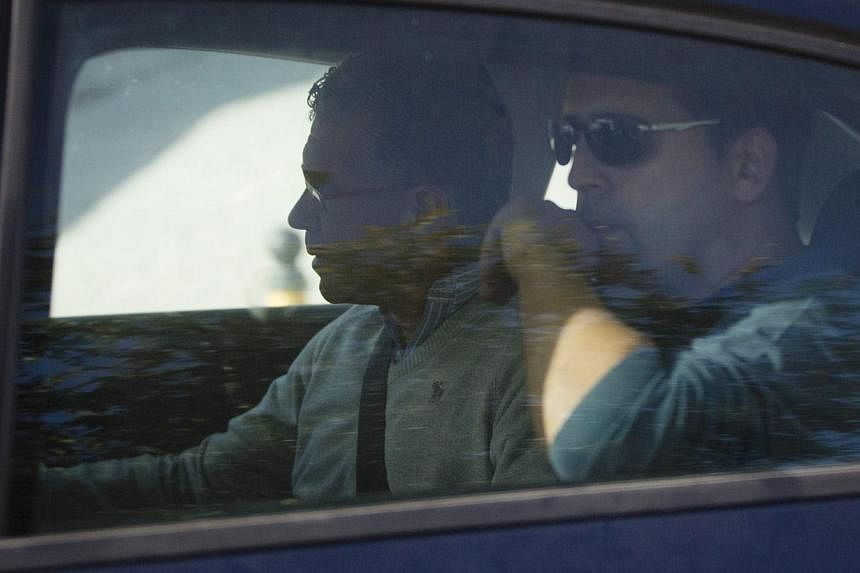MADRID (AFP) - Spanish Prime Minister Mariano Rajoy scrambled Wednesday to contain the fallout of a new graft scandal involving members of his conservative Popular Party which has outraged voters ahead of next year's general election.
Rajoy apologised in the name of his party "for having put people in positions of responsibility who were not fit for them and who apparently abused their positions" during a debate in parliament on Tuesday evening.
The rare gesture came just a day after police arrested 51 people for questioning as part of a probe into an alleged kickback scheme involving public work contracts worth roughly €250 million (S$400 million).
Those arrested include Francisco Granados, a former Popular Party (PP) deputy president of the Madrid regional government and four mayors who belong to the ruling party.
The probe comes on the heels of another scandal that has tainted former International Monetary Fund head Rodrigo Rato, a stalwart of the Popular Party and a former finance minister.
He was questioned by a judge on Oct 16 over alleged spending sprees on secret company credit cards by him and other ex-managers in the bailed-out finance group Bankia.
Rato and over 80 others face possible charges of corporate crimes over allegations that they spent a total of €15 million on nightclubs, safaris and other luxuries.
The grey-bearded premier's last apology was in August 2013 when he admitted that he had made a "mistake" in trusting Luis Barcenas, a former Popular Party treasurer who is being held in custody in relation to allegations that he ran a party slush fund.
"I understand that Spaniards are fed up and outraged. This behaviour is especially hurtful when Spaniards have had to endure so many sacrifices to get our country out of the economic crisis," the Prime Minister, who is usually seen as cold and distant, said on Tuesday.
"Rajoy could not wait any longer," conservative daily ABC wrote Wednesday, while rival centre-right daily El Mundo said "PP barons had informed the leadership of their unhappiness at the lack of reaction" at the highest level of government.
"When the sewers smell, you must clean thoroughly and not just cover them," said the president of the regional PP government of the western region of Extremadura, Jose Antonio Monago.
All opposition parties demanded explanations and more measures by the PP government, which has an absolute majority in parliament, to fight corruption.
"Mister Rajoy, you are surrounded by corruption," the leader of the main opposition Socialists, Pedro Sanchez, said during a debate in parliament on Wednesday.
Rosa Diez, the leader of the centrist Union for Democracy and Progress party which has made the need to fight corruption one of its central themes, also attacked Rajoy.
"Corruption could become Spain's Ebola," she told parliament.
"The situation is reaching the breaking point," political scientist and philosopher Josep Ramoneda told AFP.
"Twenty months ago Rajoy promised a series of measures against corruption and since then he has not signed a single decree."
Ramoneda believes the corruption probes could be linked to turf wars within the PP before the next general election slated to be held before the end of next year because "in these cases the enemy always comes from within."
The graft scandals come as Spain's political class has been shaken by the rise of a new far-left party, Podemos, which grew out of grass-roots protests against rising economic inequality and corruption.
Podemos, which means "We Can" in Spanish, stormed past older opposition groups to take fourth place in Spain's EU elections in May.
Graft is Spaniards' second-biggest concern after unemployment, according to the latest monthly poll by the Centre for Sociological Research.

